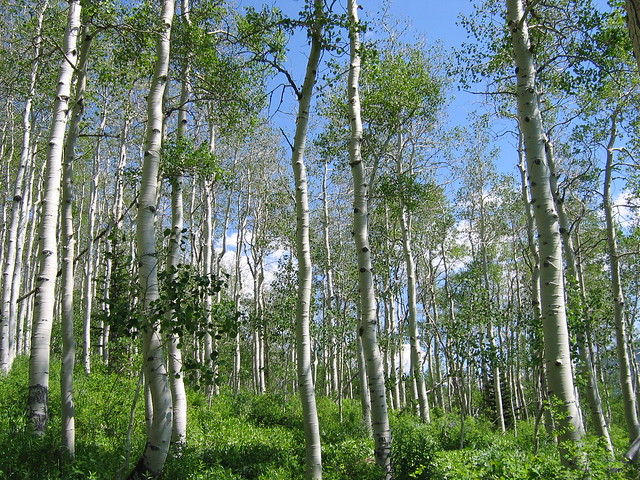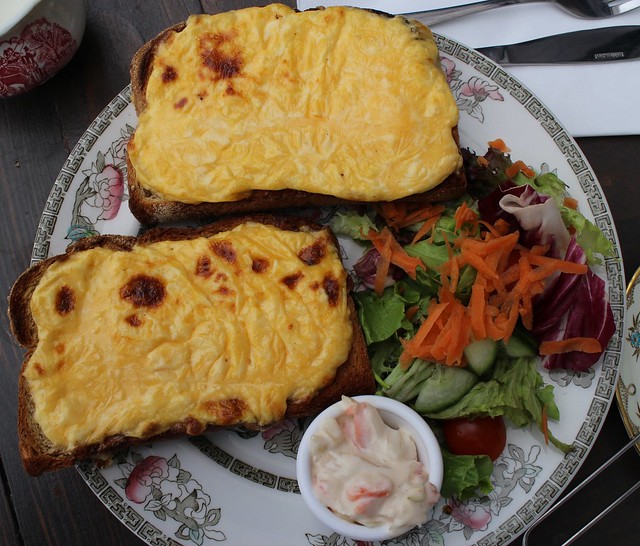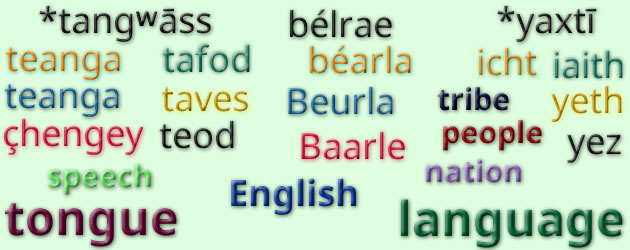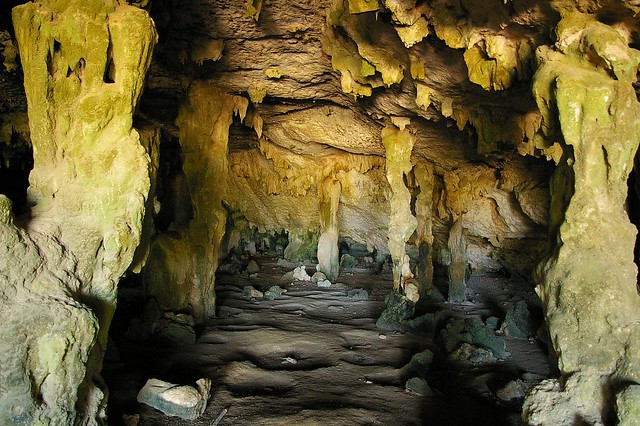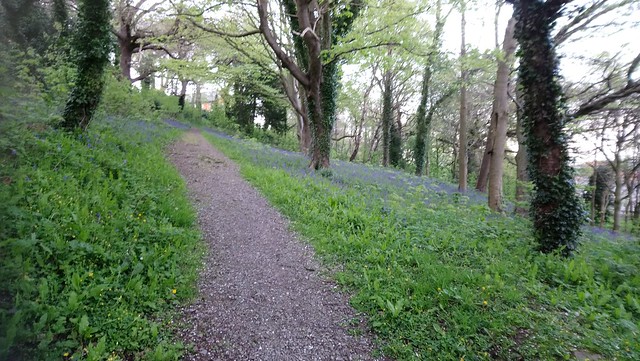There are a number of words for fields, meadows and pastures in Celtic languages. Some appear only or mainly in placenames. Here’s a selection:

Words marked with a * are reconstructions.
| Old Irish (Goídelc) |
achad = expanse of ground; pasture, field; field of battle |
| Middle Irish (Gaoidhealg) |
achad = expanse of ground; pasture, field |
| Irish (Gaeilge) |
achadh [ˈaxə/ˈaxuː] = field (archaic, used mainly in placenames) |
| Scottish Gaelic (Gàidhlig) |
achadh [axəɣ] = field, plain, meadow; cornfield newly cut or ready for reaping
achadh-feòir = hayfield
achadh-guail = coalfield
bàn-achadh = fallow field |
Etymology: unknown, possibly related to the Latin acnua (a measure or piece of land, 120 feet square) [source].
| Proto-Celtic |
*gortos = fence, enclosure, pen |
| Old Irish (Goídelc) |
gort = field, orchard, crop |
| Middle Irish (Gaoidhealg) |
gort = field (arable or pasture land), field of battle, land, territory, standing corn
guirtine = a little garden |
| Irish (Gaeilge) |
gort [ɡɔɾˠt̪ˠ] = (cultivated) field, orchard, (standing) crop
gortbhriseadh = tilling a field, tillage
gortghlan = to clear (a field) of weeds, to weed out
gortghlanadh = clearance (of a field), weeding
gortghlantóir = weeder |
| Scottish Gaelic (Gàidhlig) |
gort [gɔrˠʃd] = standing corn; enclosure; small field |
| Proto-Brythonic |
*gorθ = field |
| Welsh (Cymraeg) |
garth = field, close, enclosure, fold, pen, yard; fort
garthan = entrenchment, encampment, camp, stronghold, field of battle
gartheiniad = camp defender |
| Cornish (Kernewek) |
gorth = field |
| Old Breton |
orz = field |
| Breton (Brezhoneg) |
garz = field |
Etymology: from the Proto-Indo-European *ǵʰortós (enclosure, hedge) [source], which is also the root of words yard and garden in English, via the Proto-Germanic *gardaz (enclosure, court, yard, garden) [source].
| Old Irish (Goídelc) |
macha = milking-yard |
| Middle Irish (Gaoidhealg) |
macha, machad = an enclosure for milking cows, a milking-yard or field |
| Irish (Gaeilge) |
machaire = plain; stretch of level ground, links, course; field |
| Scottish Gaelic (Gàidhlig) |
machair [maxɪrʲ] = extensive low-lying fertile plain, level country; extensive beach; ow and level part of a farm |
| Manx (Gaelg) |
magher = field, fertile land, campaign, chase, machar, sphere |
Etymology: possibly from the Latin mācĕria (wall, enclosure) [source].
| Proto-Celtic |
*rowesyā- = field, open ground |
| Old Irish (Goídelc) |
róe [r͈oːi̯] = battle-field, level piece of ground, fight, battle |
| Middle Irish (Gaoidhealg) |
róe, roe = a level piece of grand, a battle field, battle, a rout, fight |
| Irish (Gaeilge) |
ré [rˠeː] = stretch of ground, level ground, field |
| Scottish Gaelic (Gàidhlig) |
raon [rˠɯːn] = field, (piece of) ground; plain; zone, area; field (of expertise); ambit |
| Manx (Gaelg) |
rheam = gamut, range, field, monarchy |
| Old Breton |
runt = mound |
| Breton (Brezhoneg) |
run = mound, hill |
Etymology: from the Proto-Indo-European *Hrew(H)os (open space, field). The English words rustic and rural come from the same root, via Latin [source].
| Proto-Celtic |
*kagyom = pen, enclosure |
| Gaulish |
cagiíun / *kagyom = enclosure |
| Old Irish (Goídelc) |
cai = field, orchard, crop |
| Irish (Gaeilge) |
cé [kʲeː] = quay |
| Scottish Gaelic (Gàidhlig) |
cidhe [kʲi.ə] = quay
cidhe-tìreachaidh = wharf
cidhe-bathair = goods wharf |
| Manx (Gaelg) |
keiy = jetty, quay(side), wharf |
| Proto-Brythonic |
*kaɨ = animal pen, enclosure, field |
| Middle Welsh (Kymraec) |
kay / kae = field, enclosure |
| Welsh (Cymraeg) |
cae [kaːɨ̯ / kai̯] = hedge, hedgerow, fence; field, enclosure; circle, sphere; barrier, obstruction
caead = lid, cover, shutter, flap, shell, case, enclosure, case, wall, fence, hedge, field, buckle, clasp, fastener, valve
caeadu = to bind, cover (a book), stop, close
cei [kei̯] = quay |
| Cornish (Kernewek) |
ke = hedge, fence
kay = quay |
| Old Breton |
cai = hedge |
| Middle Breton |
quae = hedge |
| Breton (Brezhoneg) |
kae [kɛː] = hedge, quay |
Etymology: from the Proto-Indo-European *kagʰyóm (enclosure, hedge) [source], which is also the root English words quay and hedge [source].
The Irish, Scottish Gaelic and Manx words for quay come from the same Proto-Celtic root, via the Anglo-Norman kay, cail (quay, wharf) and Gaulish [source]. The Welsh and Cornish words for quay also come from the same Proto-Celtic root, via Middle English, Old French and Gaulish [source].
Words from the same Proto-Celtic root, via Gaulish *kagyom and Latin caium (storehouse, shop, workshop, quay, wharf) include quai (quay, wharf, platform) in French, quay in English, кей (kej – quay, pier, wharf, jetty) in Bulgarian, and cais (quay, pier, wharf, platform) in Portuguese [source].
| Proto-Celtic |
*magos = plain, field |
| Gaulish |
*magos = field |
| Old Irish (Goídelc) |
mag [maɣ] = plain, field
ármag, árbach, ármach = field of slaughter, battlefield |
| Middle Irish (Gaoidhealg) |
mag, maig = plain, open stretch of land |
| Irish (Gaeilge) |
má [mˠɑː / mˠæː] = plain |
| Scottish Gaelic (Gàidhlig) |
magh [mɤɣ] = level country, plain
Magh Meala = Land of (Milk and) Honey (in mythology)
Magh Meall = elysium
magh na bàire = the plain of battle |
| Manx (Gaelg) |
magh = plain |
| Middle Welsh (Kymraec) |
mais, maes, meys = open country, plain, field |
| Welsh (Cymraeg) |
maes [maːɨ̯s / mai̯s] = open country, level land, plain; field; battle, victory, supremacy; out, away, off, outside, out of doors
maesol = rural, agrarian
maestref = suburb, country town, village, hamlet
maestrefol = suburban |
| Middle Cornish (Cernewec) |
maes, mes, meas, meys = open country, plain, field |
| Cornish (Kernewek) |
mes = open country
mestrev = suburb
mesya = to field |
| Old Breton |
maes = countryside, outside |
| Breton (Brezhoneg) |
maez = countryside, open field, outside, wide |
Etymology: possibly from the Proto-Indo-European *meǵh- (great) [source].
| Proto-Celtic |
*klowni = meadow |
| Old Irish (Goídelc) |
clúain = meadow |
| Middle Irish (Gaoidhealg) |
clúain, clóin = meadow, pasture-land, glade |
| Irish (Gaeilge) |
cluain = meadow |
| Scottish Gaelic (Gàidhlig) |
cluain [kl̪uən̪ʲ] = green field, pasture, meadow |
| Old Welsh |
clun = meadow, moor |
| Middle Welsh (Kymraec) |
clun = meadow, moor |
| Welsh (Cymraeg) |
clun [klɨːn / kliːn] = meadow, moor; brake, brushwood |
Etymology: possibly from the Proto-Indo-European *klopni (wet).
| Old Irish (Goídelc) |
áirge [ˈaːrʲɣʲe] = a place for milking cows |
| Middle Irish (Gaoidhealg) |
áirge, arigi, airge = a place for milking cows, byre, cowshed, herd of cattle
áirgech = having numerous herds, herdsman |
| Irish (Gaeilge) |
áirí = milking-place, herd (of cows), ground manured in previous year; ground from which potatoes have been cropped |
| Scottish Gaelic (Gàidhlig) |
àirigh [arʲɪ] = hill pasture, bothy, sheiling, pastoral summer residence
àirigheach [aːrʲɪjəx] = bounding in hill pastures. bothies or shielings
àirigheachd [aːrʲɪjəxg] = transhumance |
| Manx (Gaelg) |
eairee = hill pasture, shieling |
Etymology: from Old Irish árach, from ad·rig (to tie, bind). The Faorese word ærgi [ˈaɹt͡ʃɪ] (a pasture for cattle to graze over the summer with a hut where the people tending them live meanwhile; a shieling, saeter) also come from the same roots [source].
Words marked with a * are reconstructions.
Sources: Wiktionary, Am Faclair Beag, Online Manx Dictionary, Teanglann.ie, eDIL – Electronic Dictionary of the Irish Language, In Dúil Bélrai English – Old Irish glossary, Geiriadur Prifysgol Cymru, Gerlyver Kernewek, Lexicon Cornu-britannicum: A Dictionary of the Ancient Celtic Language of Cornwall, Dictionaire Favereau, TermOfis, Le dictionnaire diachronique du breton, Etymological Dictionary Of Proto Celtic

